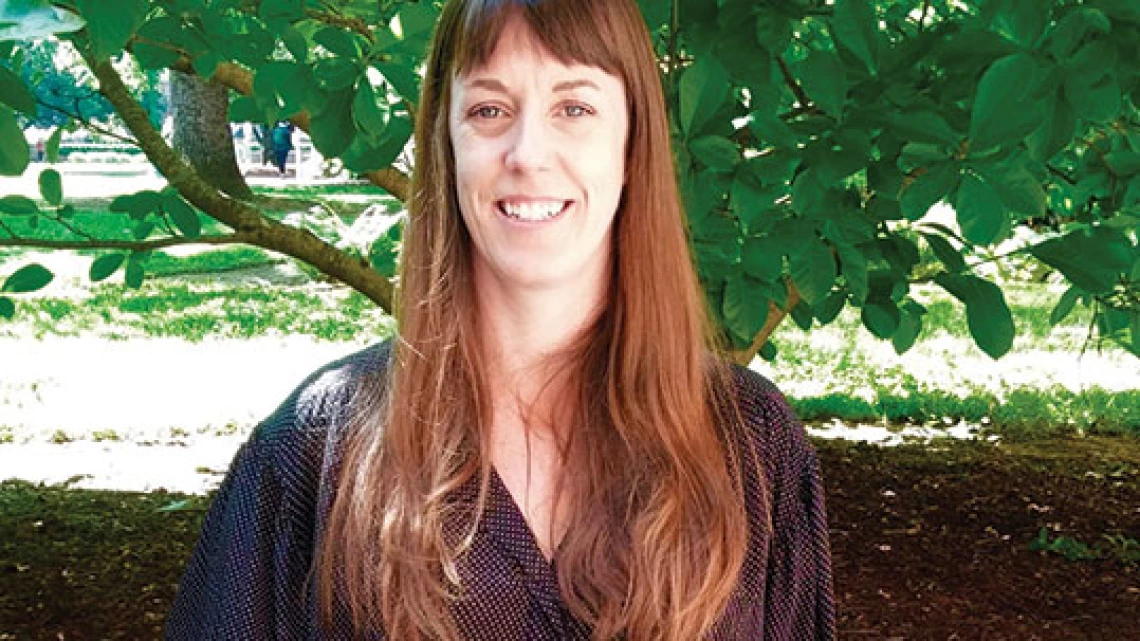Spring 2016 Visiting Fellowships Focus on Cities’ Sustainability and Food and Water in Arid Lands

Congratulations to our Spring 2016 Visiting Fellows
The Agnese Nelms Haury Program in Environment and Social Justice (Haury Program) is awarding $20,000 to visiting scholars in Spring 2016. This program brings experience and new perspectives to the University of Arizona (UA) through extended stays of academic and community representatives. These fellowships are intended to strengthen collaborations between the Tucson community and UA with those working in various parts of the world.
Katie Meehan will be an Agnese Nelms Haury Visiting Fellow during July 2016-June 2017. Katie is a Professor in the Department of Geography at the University of Oregon. Her project, Sustainable Urban Transitions in the Southwest: Water Infrastructure and Social Justice in the Mexico-U.S. Borderlands, will study the relationship between climate change and the role of cities’ sustainability.
Along with two UA faculty members, Jeff Banister and Stacie Widdifield, Katie will advance understanding of urban transition through analysis of water infrastructure plans, policies, and practices in Southwest cities. The team will further compare how the studied cities cultivate water systems as a method of climate resilience and spatial planning. This visiting fellow will not only build a network with UA researchers and the Tucson community but also produce a written publication and enhance the development of a science curriculum focused on urban water harvesting in school gardens.
Katie is excited to work at UA, “Haury Program funding allows me to collaborate with the most knowledgeable faculty that are a part of a powerhouse on the subject of water resources. It allows for great impact on high school students by transforming their science curriculum to be fun and interactive. I am excited for students to become empowered through knowledge, to change their way of being in the world.”
In conjunction with the UA community, School Garden Program, and the Tucson Unified School district, Katie yearns to translate plant-based knowledge with geospatial tools, continuing after the term of the fellowship.
The Haury Program will fund a visiting fellowship proposal that is centered around a local conference – a different take on the traditional visiting fellowship. Mika Galilee-Belfer, Director of Strategic Planning and Special Projects for UA’s College of Social and Behavioral Sciences (SBS), has organized a project to bring four visiting fellows to Tucson. This visit will be in conjunction with the Food and Water in Arid Lands: Dialogues Across Contemporary and Traditional Knowledge conference to be held in November 2016.
Mika speaks of the fellows’ contributions, “Rami Zurayk of Lebanon can help us better understand the relationships between traditional agricultural livelihood and food politics, particularly in a complex border or contested regions. Andrew Mushita of Zimbabwe brings with him knowledge of intellectual property rights, and the struggles indigenous communities have had in controlling their own seed stock and protecting essential biodiversity. Alejandro Argumedo of Peru can share how genetic diversity rooted in local traditions bolsters both economic development and cultural identity. And finally, Jim Enote of New Mexico can speak to high altitude farming in our region, and to issues specific to land and water conservation in the Southwest.”
Visiting fellows will engage in interactions within UA, as well as Tucson community organizations and members. The group will address sustainable approaches to food and water rights, security, sovereignty, intellectual property, and social justice in a time of climate change through extended networking.
Mika states, “This is where the real promise of dialogue emerges: in learning how things are done elsewhere in the world, in sharing how things have been done here, and in recognizing the richness of ideas and actions that can emerge when we consider heritage, environment, and traditional and emerging practices. We are particularly thankful to the Haury program for its support of a cohort model of fellows for this November. Haury Fellowship funds are helping bring in four of the world’s top thinkers and doers in food justice and food systems, each from a different part of the world.”
Visiting fellowships are intended to generate new, additional, and/or more profound collaboration among individuals working on social justice and environmental challenges. The grants will cover the fellow’s travel and accommodations in order to bring outside perspectives from different regions to southern Arizona. Haury Program’s funding will provide opportunities to establish and strengthen long-term collaborations among local and visiting researchers.
